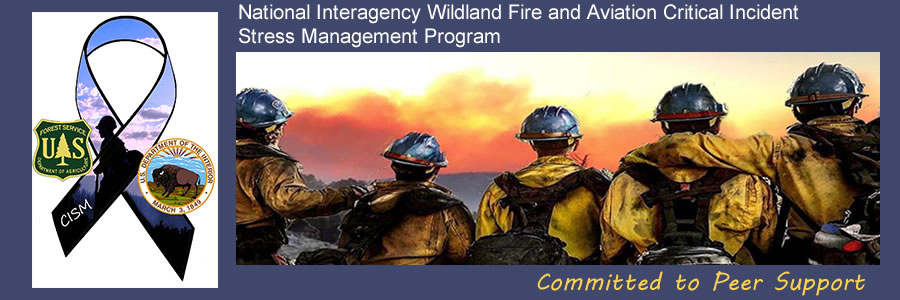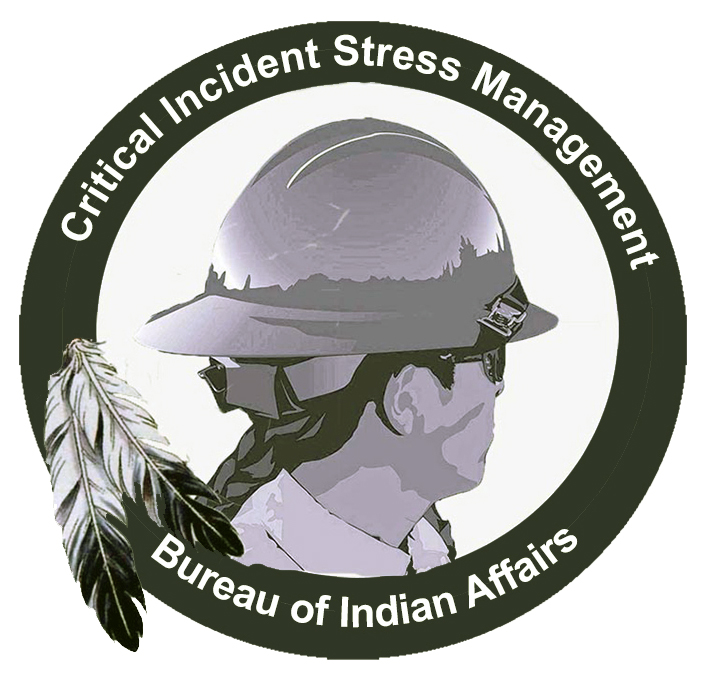Main Print Heading
Print Subheading
Critical Incident Stress Management
Critical Incident Stress Management (CISM) is the selection and implementation of the most appropriate crisis intervention tactics to best respond to the situation's needs at hand. However, CISM has multiple components other than responding after a critical incident. These components can be used before, during, and after a crisis. They include a wide range of various activities, including pre-incident education (PIE), including resiliency, planning and preparedness, acute crisis management, and post-incident follow-up.
The purpose of the crisis intervention portion of CISM is to mitigate the impact of an event, accelerate the recovery process, and assess the need for additional or alternative services. Crisis intervention, which is a component of an overall CISM program, is provided through trained and carefully selected peer supporters and licensed Mental Health Professionals (MHP) who specialize in trauma.
The wildland fire CISM program intends to provide pre-incident education, resiliency tools, and support work-related incidents primarily for individuals and groups who work in fire and aviation and may assist other disciplines as needed. The wildland fire CISM program delivers CISM services through Peer Support, the formal Standard of Care (Bureau of Indian Affairs and Bureau of Land Management). Read More

Critical Incidents and Trauma
The lesson to be learned about trauma of any form is that it never affects just one person, one family, one generation, or even one community. Like the rock thrown into the pond, the effects of trauma ripple out until its waves touch all shores.
Psychological trauma is a person’s emotional response to an extremely negative experience, such as suffering life-threatening danger, injury, or abuse, witnessing the death of others, or losing a colleague in the line of duty. Experiencing a traumatic incident does not mean someone is damaged or doomed to develop post-traumatic stress disorder (PTSD). Such experience means that the event occurred, is now part of a person’s sensory memory, and needs to be processed and integrated. The slight differences in how a person experiences a particular event, such as how close they were to the victims, or how long they were at the scene, can influence the intensity of their responses.

Even with identical exposure to a traumatic event, responses will differ based on factors like how different individuals cope with stress, availability of social support, prior traumatic experiences, and the overall stress in their lives.
Peer Support
Peer Support is a great philosophy. That is, the idea of peers supporting peers is vital. Who better than a firefighter to know the struggles and concerns of another firefighter? Who better than a firefighter to know how to cope with the challenges of the job?
Members of the wildland fire culture tend to be very protective of outsiders. Talking about a critical incident in a group of Peers works because it gives individuals a chance to reprocess what they saw and how they reacted through both their eyes and the eyes of other group members. But it only works if they talk with people they trust and feel safe around.

Pre-Incident Education
Educating employees about the Critical Incident Stress Management/Peer Support program, its services, and its benefits before a critical incident occurs is the cornerstone of an effective CISM program. Plans and protocols must be developed and understood. Attempting to learn about crisis intervention after the fact is predictive of confusion, delays, and the possibility of improper or inadequate support or intervention strategies and tactics.
Further, effective pre-incident education also instills resistance and resilience, so individuals and organizations are better prepared when faced with adversity.
Critical Incidents

Critical incidents are important, often stressful, events that can overwhelm one's usual coping mechanisms. The incident itself does not define a critical incident; the individuals and or an organization's reaction to what occurred determines a critical incident.

Critical Incidents are likely to become part of the history of an agency and can influence the culture of the wildland fire community.
What is a Crisis
We all experience a variety of stressful events in our lifetime. Each of us has unique ways of dealing with these events to maintain a comfortable emotional balance, and when the usual coping mechanisms fail, we seek new ways of coping. A crisis state comes into being when these recent attempts fail to return us to the pre-crisis level of emotional balance.

A crisis is both a time of opportunity and danger. A crisis is useful when it causes one to go beyond ordinary coping skills (both internal and external) and develop new skills, therefore becoming more competent and autonomous. A crisis is dangerous when the person becomes overwhelmed with anxiety and pain and adapts in negative ways. Good mental health the result of a life history of successful crisis resolutions.
Referral and Follow-Up Care
Referral and follow-up after the initial crisis intervention facilitating access to the next level of formalized medical and psychological care is an absolutely essential aspect of CISM.
However, this does not imply that CIPS Groups should make "repeated" or "follow-up visits" after the initial interventions. That's outside the scope of their training. Follow-up ensures that those individuals who require more intense intervention than acute psychological support receive a referral to a higher level of care.
Additional Information
International Critical Incident Stress Foundation
National Alliance on Mental Illness
American Telepsychology Association
 » Read More
» Read More
Agency CISM Information
- Bureau of Indian Affairs
- Bureau of Land Management
- U.S. Fish and Wildlife Service
- U.S. Forest Service
- National Park Service
- Southwest Geographic Area
- State Agencies


